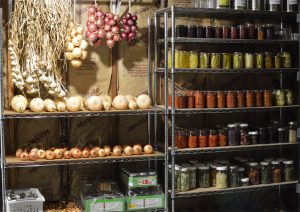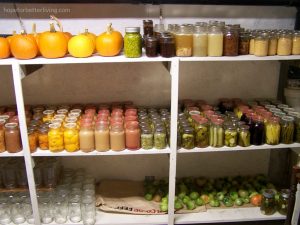Introduction
In today’s world, proper storage of goods and perishable items is crucial for maintaining their quality and extending their shelf life. Cold storage facilities play a vital role in preserving a wide range of items that require specific temperature and humidity conditions to remain fresh. From food products to pharmaceuticals, cold storage offers a controlled environment that helps prevent spoilage and degradation. In this article, we will explore the various items commonly stored in cold storage and discuss their benefits.
1. Food Products
One of the primary uses of cold storage is for storing various food products. These include fresh fruits and vegetables, dairy products, meat, fish, and poultry. Cold storage facilities help preserve the nutritional value of these perishable items by maintaining the required temperature and humidity levels. This ensures that the food remains safe for consumption over extended periods, reducing waste and increasing availability.
Moreover, cold storage also facilitates the storage of processed and packaged food items such as frozen meals, ice cream, and baked goods. These products often have a longer shelf life when stored at lower temperatures, and cold storage facilities provide the ideal conditions for maintaining their quality.
Benefits of Storing Food Products in Cold Storage:
- Prolongs shelf life: Cold storage facilities slow down the natural degradation processes in food, allowing them to stay fresh for longer periods.
- Minimizes spoilage: By maintaining optimal temperature and humidity, cold storage helps prevent bacterial growth, thereby reducing the chances of spoilage.
- Reduces waste: Longer shelf life and minimized spoilage mean less food waste, contributing to sustainability and cost savings.
- Enables seasonal availability: Cold storage allows for the storage of perishable items during their peak seasons, ensuring a steady supply throughout the year.
2. Pharmaceuticals
Cold storage also plays a crucial role in the pharmaceutical industry. Many medications and vaccines require specific temperature conditions to maintain their effectiveness. Cold storage facilities, such as refrigerators and freezers, help preserve the potency of these drugs and ensure their safety for consumption.

Medications that require cold storage include vaccines, insulin, certain antibiotics, and various biological products. These items are often sensitive to heat and can degrade quickly if not stored under controlled conditions. Cold storage facilities provide the necessary temperature control, ensuring that the medications retain their efficacy for a longer period.
Benefits of Storing Pharmaceuticals in Cold Storage:
- Maintains potency: Cold storage prevents the degradation of pharmaceuticals, ensuring that they remain effective and safe for use.
- Preserves integrity: By controlling temperature fluctuations, cold storage helps maintain the chemical and physical integrity of medications.
- Extends shelf life: Proper storage conditions can significantly extend the shelf life of pharmaceutical products, reducing waste and saving costs.
- Complies with regulations: Many medications require strict temperature controls to meet regulatory standards, and cold storage facilities offer a compliant solution.
3. Floral Products
Cold storage is also extensively used in the floral industry to preserve the freshness and beauty of flowers. Flowers are highly perishable and require specific temperature and humidity conditions to remain vibrant and last longer. Cold storage facilities provide an optimal environment to slow down the aging process and maintain the quality of floral products.
Florists, wholesalers, and event planners often rely on cold storage to store and transport flowers, ensuring that they arrive at their destination in pristine condition. By controlling the temperature and humidity levels, cold storage facilities help prolong the vase life of flowers, allowing for a more extended display and enhancing their market value.
Benefits of Storing Floral Products in Cold Storage:
- Preserves freshness: Cold storage slows down the wilting process, keeping flowers fresh longer period.
- Minimizes wilting: By maintaining the ideal temperature and humidity, cold storage reduces the wilting of flowers and extends their shelf life.
- Allows for seasonal availability: Cold storage enables the storage of flowers during off-seasons, ensuring a continuous supply and meeting customer demands.
- Supports efficient transportation: Cold storage helps maintain the quality of flowers during transportation, preserving their appearance and fragrance.
4. Chemicals and Laboratory Samples
Cold storage is essential for storing chemicals, reagents, and laboratory samples that require specific temperature conditions. Many chemicals and biological substances are sensitive to heat and can degrade or lose their effectiveness if exposed to improper storage conditions.
Cold storage facilities, such as ultra-low temperature freezers, provide the necessary cooling to preserve the stability and integrity of these substances. Laboratories, research facilities, and pharmaceutical companies rely on cold storage to store samples, vaccines, enzymes, and other temperature-sensitive materials, ensuring their viability and accuracy for future use.
Benefits of Storing Chemicals and Laboratory Samples in Cold Storage:
- Maintains stability: Cold storage helps prevent chemical reactions and degradation, maintaining the stability of samples and substances.
- Ensures data accuracy: Proper storage conditions minimize the risk of sample contamination and ensure accurate experimental results.
- Prolongs shelf life: Cold storage extends the shelf life of chemicals, reagents, and laboratory samples, reducing the need for frequent restocking.
- Preserves research investments: Cold storage protects valuable samples and substances, safeguarding investments in research and development.
Conclusion
Cold storage facilities play a vital role in preserving and extending the shelf life of various items that require specific temperature and humidity conditions. From food products to pharmaceuticals, floral products to laboratory samples, the benefits of cold storage are vast. By maintaining optimal storage conditions, cold storage helps minimize spoilage, reduce waste, and ensure the availability of perishable items throughout the year.

Whether it’s preserving the nutritional value of food, maintaining the potency of medications, enhancing the beauty of flowers, or safeguarding laboratory samples, cold storage facilities provide a controlled environment that protects the quality and integrity of stored items. As technology continues to advance, cold storage solutions become more efficient and adaptable, catering to the diverse storage needs of different industries.
By embracing the benefits of cold storage, businesses and industries can optimize their operations, reduce costs, and contribute to sustainability by minimizing waste. The importance of cold storage in today’s world cannot be overstated, as it plays a critical role in ensuring the availability and quality of essential goods for consumers worldwide. https://commgen.com.au/product/insulated-doors-windows-curtains/

Recent Comments